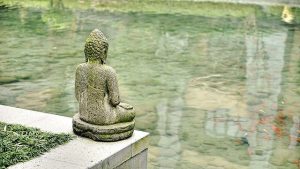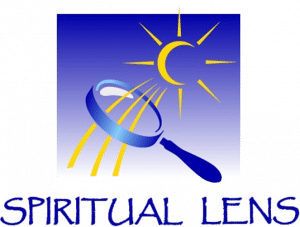Learning how to be still – how to do nothing – while living in a ‘do everything’ world is a very important skill. Doing nothing seems slothful and lazy but is actually a powerful and rejuvenating experience for the soul. For those who seek a spiritual solution to the problems of the world, it’s a powerful skill. I wrote about my struggle with being a human being vs. a human doing, a few months ago: http://rabbicosnowsky.com/how-to-be-zen-through-the-struggle-with-being-vs-doing/
Doing nothing is an art.
Doing nothing takes practice and time. If it were easy, everyone would meditate! As you remember, I struggle with the act of meditation. I made a commitment to meditate every morning (during a six-month class). I am happy to report that I am keeping that commitment. I have been meditating daily, even if only for a few minutes. But let me tell you – it’s difficult! It’s truly hard to do nothing. My brain is very active, loud and chatty, but my breathing is steady and slow, focused on nothing but breath and all that is Divine.
In Taoism, there is a philosophy of Wu Wei. It is a basic principle which “Wu” can be translated as “no” and “Wei” can be translated as “accomplish” or “doing.” It is a philosophy that asks one to trust that doing nothing will also lead to great accomplishment. Doing nothing is hard work. Staying quiet is often as arduous as moving and changing, but the concept of Wu Wei is a call to do less. We then realize that the process of achieving a goal is just as amazing as achieving the goal itself.
On the other hand, Wu Wei is often misunderstood as being lazy. It is, rather, a call to know when to act and when not to act. Sometimes we must take action.
Taking action vs. doing nothing
A few weeks ago, the sale of my parents’ condo had fallen through. I thought it was bad timing! Little did I know that there was a larger plan unfolding. This past week, a few homeless friends got suitable housing. Because the timing was right, my parents (who no longer need their second home) were able to donate their furniture to these families. Although I desired to practice more Wu Wei and do less, the timing was bad. I had a deadline because my parents needed an empty condo to close the sale. There will be time to continue to practice the art of doing less. When an action must be taken, it is not wise to delay. That’s the rest of the story I began a few weeks ago about my parents condo!
Sometimes it’s hard to know when to act and in which direction one should go
People come to me asking for help in making a decision. I offer the good news that there’s no way to make a “wrong” decision. Whatever decision they make is going to be the right decision, even if they don’t get the desired outcome. If they don’t make a decision, that too is a decision! In seeking the answer to which direction I should go – what was the advice and direction always given? “Sit quietly and seek the answer from within.” Ugh! I hated that answer. Why? Because it went directly against everything society had taught me. I have old ideas that I should be in motion, doing something. Instead, I was being told to go back to inaction and meditation!
It is written, “Be still and know I am God.” (Psalm 46:10). In the stillness of our soul, we can hear God’s answer. If my mind is loud and noisy, it is harder to hear it. Therefore I must return to the practice of listening to my soul.
When it comes to meditation I am like a soldier in a foxhole who only seems to pray when her butt is falling off. I have to learn to do these spiritual disciplines during the less-challenging times so that I can access the knowledge and power during the difficult times. Less-stressful periods are the time to practice Wu Wei.
Learning to do nothing is a wholly spiritual process. It gives us strength to take action when we are supposed to act.
Each of us has a story about when we’ve experienced uncertainty. We may have been faced with making a decision and are not sure of the way. This period has been described as being “in between rooms.” It is like we are in a corridor, unsure of which door to walk through. This is a sign that we are moving in the right direction! Our growth is predicated on being okay with being in the hall. It’s that time when contemplating a job change. Or maybe a relationship status change. Or they know it’s time to get sober and leave old using friends behind. Perhaps making a decision about a move across the country. That time before we take an action is the experience of being in the corridor.
I will end with this: Have faith and courage to do nothing. If sheltering-in-place has taught us anything, it’s that it’s okay to do less and be more. Trusting this process helps us become balanced – like a skilled surfer who learns how to ride the waves instead of fighting them.
The rest we take after a workout is just as important as the workout itself!!!
Today I ask you to practice being calm, still, and join me in trusting the universe. I am learning to sit in the discomfort of meditation and I invite you into the process as well. Please drop me a note in the comments or email and let me know of your experience!


